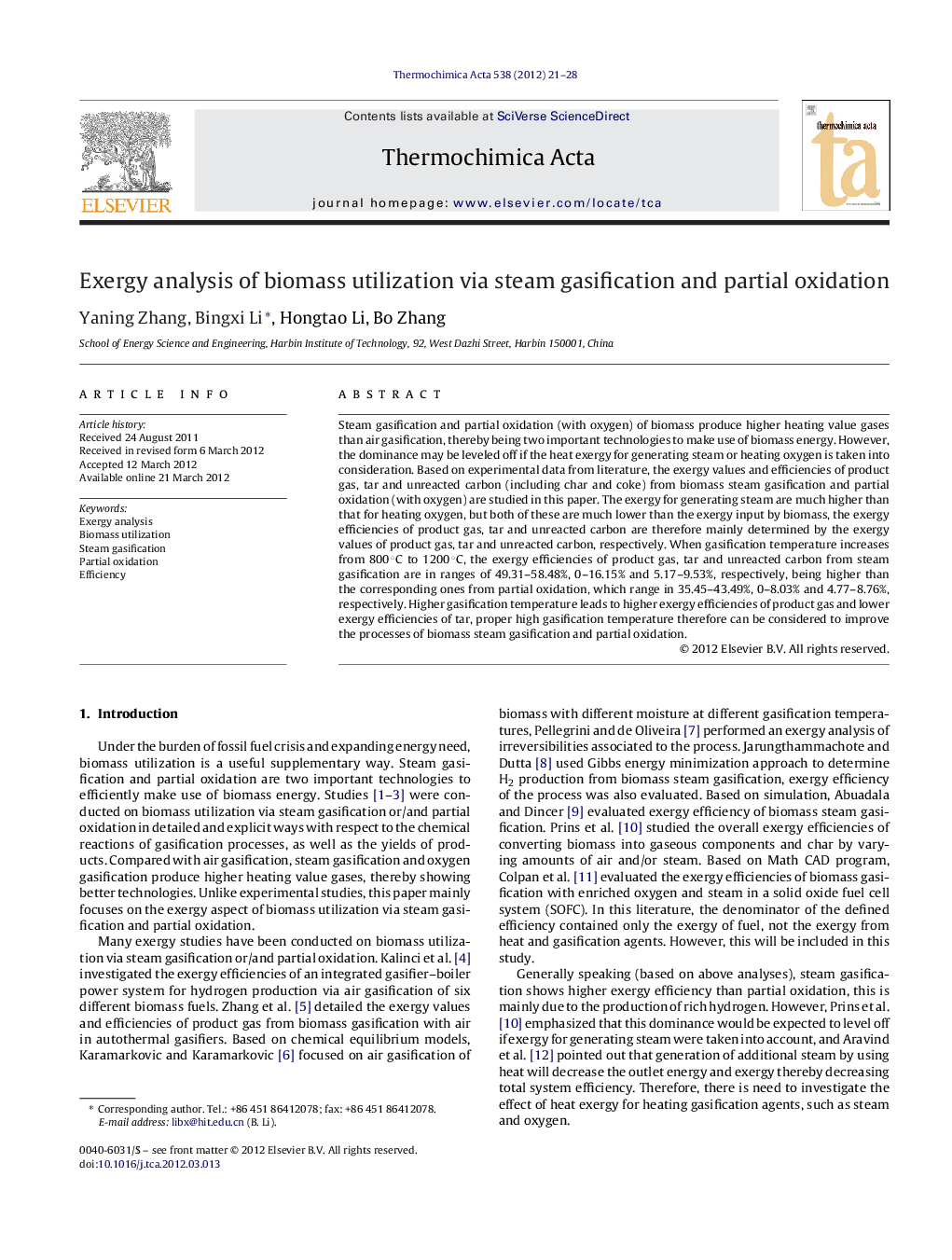| Article ID | Journal | Published Year | Pages | File Type |
|---|---|---|---|---|
| 674139 | Thermochimica Acta | 2012 | 8 Pages |
Steam gasification and partial oxidation (with oxygen) of biomass produce higher heating value gases than air gasification, thereby being two important technologies to make use of biomass energy. However, the dominance may be leveled off if the heat exergy for generating steam or heating oxygen is taken into consideration. Based on experimental data from literature, the exergy values and efficiencies of product gas, tar and unreacted carbon (including char and coke) from biomass steam gasification and partial oxidation (with oxygen) are studied in this paper. The exergy for generating steam are much higher than that for heating oxygen, but both of these are much lower than the exergy input by biomass, the exergy efficiencies of product gas, tar and unreacted carbon are therefore mainly determined by the exergy values of product gas, tar and unreacted carbon, respectively. When gasification temperature increases from 800 °C to 1200 °C, the exergy efficiencies of product gas, tar and unreacted carbon from steam gasification are in ranges of 49.31–58.48%, 0–16.15% and 5.17–9.53%, respectively, being higher than the corresponding ones from partial oxidation, which range in 35.45–43.49%, 0–8.03% and 4.77–8.76%, respectively. Higher gasification temperature leads to higher exergy efficiencies of product gas and lower exergy efficiencies of tar, proper high gasification temperature therefore can be considered to improve the processes of biomass steam gasification and partial oxidation.
▶ Biomass steam gasification and partial oxidation are analyzed and compared. ▶ Exergy values and efficiencies of product gas, tar and unreacted carbon are detailed. ▶ Exergy for heating agents has no obvious effect on gasification efficiency. ▶ Steam gasification shows higher exergy efficiencies than partial oxidation. ▶ Higher gasification temperature favors gas production and tar reduction.
